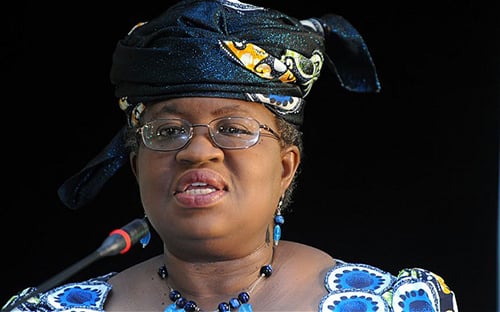
African Development Bank (AfDB) says Nigeria’s tight monetary policy contributed immensely in pegging the inflation at eight per cent in the third quarter of 2013.
The country has been managing its key rates – lending, inflation and exchange – to keep liquidity under control.
AfDB inflation analysis is contained in the bank’s bimonthly Economic Review on Nigeria.
The report said the single digit inflation rate was reinforced by agriculture reforms that further reduced food inflation, the major driver of the nation’s inflation profile.
Advertisement
It said that investors’ confidence was gradually being restored as the nation’s bourse overall value of listed stocks or market capitalisation increased from N15.8 trillion in second quarter of 2013 to N17.7 trillion in third quarter of 2013.
The All Share Index rose by 1.16 per cent 36,585 points in the period under review from 36,164 points achieved in the second quarter.
“Inflation continues to decelerate on the back of tight monetary policy stance of the Central Bank of Nigeria and other fiscal and reform measures.
Advertisement
“The year-on-year headline inflation which fluctuated between 15.1 per cent and 10.2 per cent since the second quarter of 2008 declined to 8 per cent at the end of the third quarter of 2013.
“Food and non-food inflation stood at 9.4 per cent and 7.4 per cent, respectively while upward pressure on prices is usually expected for food items during the first half of the year which is usually a planting period.
“Third quarter is a period of harvest, putting further downward pressure on the food sub-index,” it said.
The report said that generally prices were expected to remain in the single digit at end of the year giving the measures put in place to moderate inflation.
Advertisement
It also pointed out that upcoming general elections and imminent change in CBN leadership were identified as two risks to sustainability of the monetary policy.
“As previous experiences have shown, election years are characterised by high fiscal spending that may consequently make it harder for the CBN to mop up excess liquidity in the system and ensure stable inflation rate.
“The second major risk is the upcoming change in leadership of the CBN that may possibly result in emergence of a leader that does not favour pursuing the current tight monetary policy stance,” it said.
The report said that interest rates appeared to be easing, suggesting that the financial inclusion policy of government and other lending initiatives might have begun to have positive impact.
Advertisement
According to the report, the slight rise in interbank lending rate to 14 per cent in the quarter under review as against 11.7 per cent in the previous quarter is possibly a visible manifestation of the increase in Cash Reserve Ratio (CRR) on public funds to 50 per cent.
“One will expect, however, that raising average terms and lending rate will be an appropriate action to help improve savings mobilisation that would help accommodate the constraint imposed by the increased CRR on public funds,” it said.
Advertisement
Add a comment





